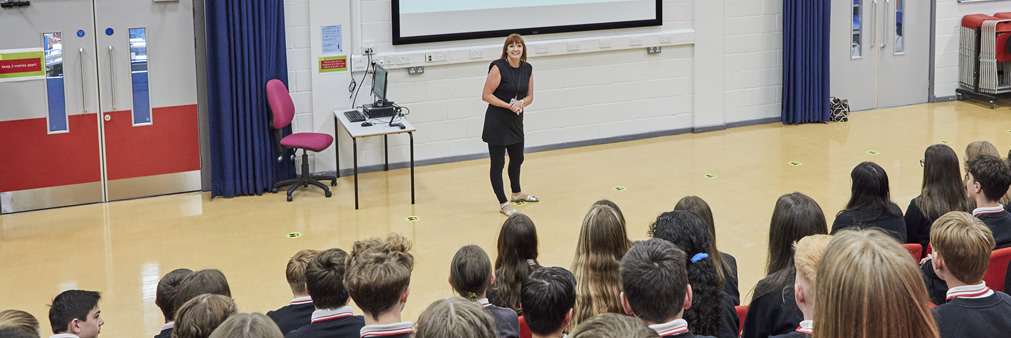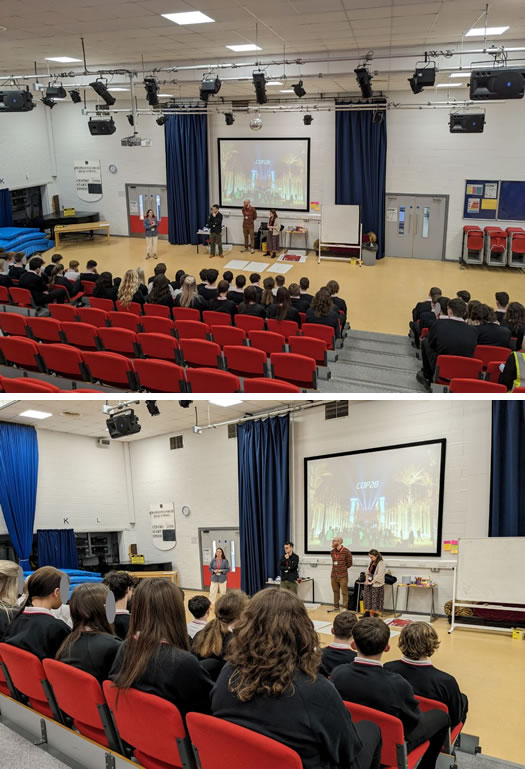
News and Events
Geography students attend COP28 Climate Change event

Last week our GCSE Geography students attended a special Climate Change event hosted by the University of Sheffield. Our aim for was for students to understand the difficulties that can happen in global negations when countries are trying to reach a consensus. The event began with a lecture from Dr Robert Marchand and Dr Tom Ward who were both part of the independent observation team at the global climate conference COP28 which was held in Dubai last year. They shared their experience and expertise with our students, and explained that although developed countries have produced most of our greenhouse gas emissions, less developed countries are more likely to feel the impacts of this.
After the lecture, students took part in a mini conference and debate to highlight the difficulties that can happen when countries try to reach a unanimous decision. They worked together in groups to represent countries at different stages of development and put forward their solutions to reduce the impact of climate change. Students learnt that poorer countries often say yes to a reduced deal, even if it means that new agreements mostly benefit the more advanced countries (as some progress is better than none). The activities and topics covered linked with a number of areas students are studying on the GCSE Geography course, including international development.
Mr Sellers, Head of Geography, said:
“The presenters were really pleased with how our students engaged with the event, and were particularly impressed with the complexity of the work our Y11s produced.”
Thank you to Dr Marchand, Dr Ward, Lowenna Jones and Frances Payne from the University of Sheffield for sharing their expert knowledge with our students, and for helping them to understand how the international negotiations process works.

